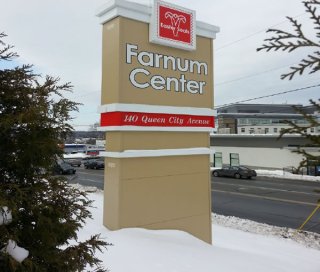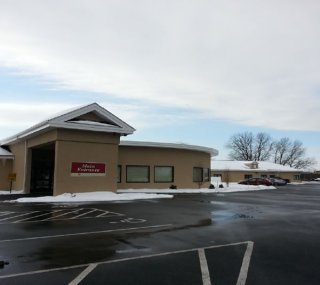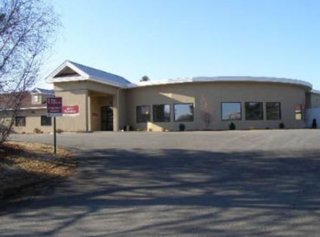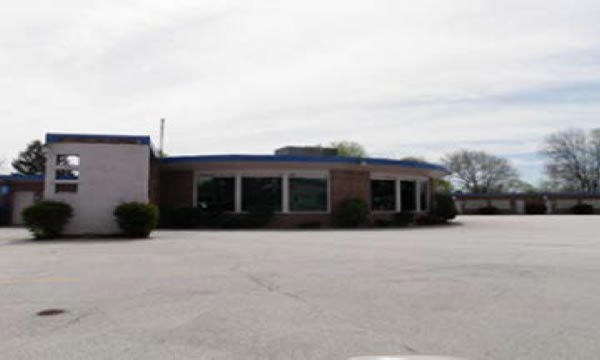R1 Success Story: Farnum Center, Manchester, N.H.

EPA Grant Recipient:
City of Manchester
Grant Types:
Assessment
Former Uses:
Queen City Inn
Current Use:
Farnum Center Recovery Treatment Center
Download Success Story:
Farnum Center Manchester, N.H. (pdf)
With more than 100,000 residents, Manchester is the largest city in the State of New Hampshire. It was the world's first industrialized city and once housed the world's largest textile mill complex. Historically, the City has been a community where immigrants sought opportunities, and today Manchester remains an attractive destination for immigrant workers. Manchester is a modern, vibrant city but suffers from one of the highest poverty rates in the state. For many years, this area has suffered with a burdened population struggling with substance abuse. The addiction epidemic continues to rise in the state, as does the need for treatment centers. Seeing the increasing need for its substance abuse treatment services, the Easter Seals Farnum Center launched a campaign in 2012 to move the Center to a new location, the former Queen City Inn site.
Priming the Property for Redevelopment
The former Queen City Inn, located at 140 Queen City Avenue, operated as a motel between 1954 and 2012. Historically, the 3.5-acre site was surrounded by gasoline stations and other petroleum facilities. In 2012, this Site was identified in Manchester's downtown revitalization plan and targeted for redevelopment.
Using its Brownfields community-wide assessment grant, the City of Manchester conducted Phase I and II Environmental Site Assessments (ESAs) at the site under the oversight of the New Hampshire Department of Environmental Services. Contaminants found included benzo(a) pyrene and benzo(b) fluoranthene, which are commonly associated with coal tar. Based on the results of the Phase I and II ESAs, the site was able to be sold for cleanup and redevelopment.

"I have been sober for more than two years. I am a free and happy man. I no longer suffer from the obsessive thoughts and behaviors of active addiction. My life is more wonderful than I ever could have imagined and it all began with a small amount of willingness when I walked through the doors".
-Farnum Center Patient
(Credits: Farnumcenter.org)
"The Brownfields redevelopment of the Queen City Hotel site allowed the Farnum Center to open New Hampshire's most comprehensive addiction treatment center. The Farnum Center has become the first line of defense in the trenches battling New Hampshire's opiate addiction crisis."
Dick Anagnost, President
Anagnost Investments, Inc.
Today

A local developer, Anagnost Investments helped make this treatment center come to fruition by acquiring the property, funding the cleanup, and redeveloping the site at an overall investment of almost $4.8M. The Bishops Charitable Assistance Fund also granted $10,000 toward the redevelopment.
The cleanup involved removal of hazardous building materials such as asbestos and lead. Reusing the existing building and foundation structures reduced costs and afforded the opportunity to incorporate sustainability practices during construction. Ninety-six construction jobs were leveraged. The hard work and commitment to the needs of the community resulted in the opening of the state's first non-hospital based medical detoxification unit, doubling the number of beds available to patients.
This state-of-the-art treatment facility is located within 2 miles of the new Elliot Hospital and employs more than 100 people. The City has also seen an increase in the tax base since the property value has increased from $1.6 million to over $2.4 million, thus providing key tax revenues for the City. Farnum's Inpatient programs are sex-specific residential treatment programs and have the capacity of serve 113 adults who have primary substance use disorder. Since 2013 to present day, Farnum Center has had almost 22,000 applications submitted for services. Most importantly, this redevelopment has given a burdened population with substance abuse needs a place to seek treatment.


For more information:
Visit the EPA Brownfields website at www.epa.gov/brownfields or contact Christine Lombard, 617-918-1305, lombard.chris@epa.gov.
EPA 560-A-19-003
Updated April 2019
